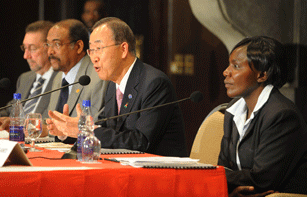Q. Can you summarize the results of the estrogen-plus-progestin and estrogen-alone studies?
A. Summaries of the findings are given below. However, be aware that the findings for the two studies should not be compared directly because of differences in the women's characteristics at the time of their enrollment in the studies. For example, those in the estrogen-alone study had a higher risk of cardiovascular disease than those in the estrogen-plus-progestin study. Women in the estrogen-alone study were more likely to have such heart disease risk factors as high blood pressure, high blood cholesterol, diabetes, and obesity.
Compared with the placebo, estrogen plus progestin resulted in:
Increased risk of heart attack
Increased risk of stroke
Increased risk of blood clots
Increased risk of breast cancer
Reduced risk of colorectal cancer
Fewer fractures
No protection against mild cognitive impairment and increased risk of dementia (study included only women 65 and older)
Compared with the placebo, estrogen alone resulted in:
No difference in risk for heart attack
Increased risk of stroke
Increased risk of blood clots
Uncertain effect for breast cancer
No difference in risk for colorectal cancer
Reduced risk of fracture
(Findings about memory and cognitive function are not yet available.)

